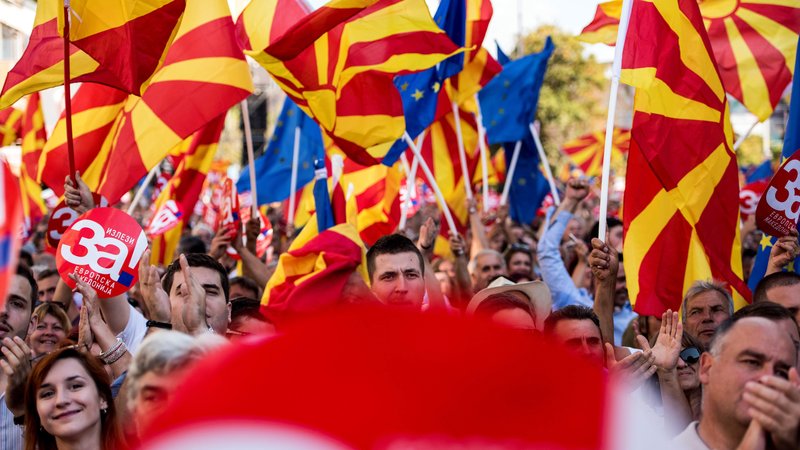Macedonia held a referendum on Sunday on whether to change its name to ‘Republic of North Macedonia’, a move that would resolve a decades-old name dispute with Greece.
Greece, which has a province called Macedonia, maintains that its Northern neighbour’s name represents a claim on its territory and has vetoed its entrance into NATO and the EU.
Athens and Skopje struck a deal in June based on the proposed new name, but nationalist opponents argue the change would undermine the ethnic identity of the country’s Slavic majority population.
President Gjorge Ivanov has said he will not be voting in the referendum and a boycott campaign has cast doubts on whether turnout will meet the minimum 50 per cent required for the referendum to be valid.
The question on the referendum ballot read: “Are you for NATO and EU membership with acceptance of the agreement with Greece”.
Supporters of the name change, including Prime Minister Zoran Zaev, argued that it is a price worth paying for admission into the EU and NATO.
“I came today to vote for the future of the country and for young people in Macedonia.
“So they can be live freely under the umbrella of the European Union because it means safer lives for all of us,” Olivera Georgijevska, 79, said in Skopje.
Although not legally binding, enough members of parliament have said they will abide by the vote’s outcome to make it decisive, while the name change would require a two-thirds majority in parliament.
The state election commission said that there had been no reports of irregularities in the first two hours of the vote, while turnout stood at 2.45 per cent.
“I came out to vote because of my children, our place is in Europe,” said Gjose Tanevski, 62, voter in Skopje.
In front of the parliament in Skopje, Vladimir Kavardarkov, 54, was preparing a small stage and pulling up chairs in front of tents set up by those who will boycott the referendum.
“We are for NATO and EU, but we want to join with our heads up, not through the service door, we are a poor country, but we do have dignity.
“If NATO and EU don’t want to take us as Macedonia, we can turn to others like China and Russia and become part of Euro-Asia integration,” Kavadarkov noted
Prime Minister Zaev said NATO membership would bring much needed investment to Macedonia, which has an unemployment rate of over 20 per cent.
“I believe the huge majority will be in favour because more than 80 per cent of our citizens are in favour of EU and NATO,” Zaev said after casting his ballot.
He said that a “yes” result would be “confirmation of our future.” (Reuters/NAN)
Macedonians vote in referendum on whether to change country’s name

